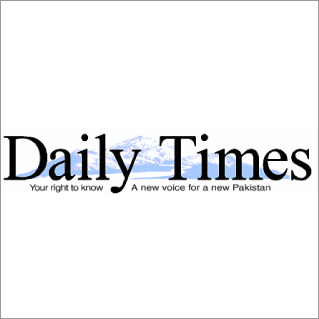By Ashfaq Yusufzai
Pakistan may have a low prevalence of HIV/AIDS, with only about 9,000 officially confirmed cases, but the country is at high risk, particularly due to the growing number of injecting drug users (IDUs), say experts. Of the country's 180 million people, 420,000 are IDUs, according to the Drug Use in Pakistan survey conducted last year.
"IDUs contract HIV by sharing infected syringes. We are afraid that HIV/AIDS can spread to the general population through them," said Syed Mohammad Javid, manager of the National AIDS Control Program (NACP).
He said the easy availability of heroin from nearby Afghanistan, where large swathes of land are under poppy cultivation, has become a pressing problem for Pakistani cities. Peshawar, capital of the northern Khyber Pakhtunkhwa province, is one such place.
"Twenty percent of IDUs have tested positive for HIV/AIDS in Peshawar, which is alarming," he said, citing a study conducted by the Canadian International Development Agency in collaboration with the NACP in 2010.
A similar study in 2008 had put the figure at 13%, Javid said, pointing out that HIV/AIDS prevalence is increasing.
He said Pakistan has officially declared 9,000 confirmed cases of HIV/AIDS. But the World Health Organization (WHO) estimates that the actual number could well be more than 100,000.
Javid said that in 2010, the World Bank had stopped funding free services for HIV-infected drug addicts, as the money had to be diverted for use in flood-hit areas. This compounded the problem, he said.
Dr Abdul Hameed, a WHO medical officer, is deeply concerned over the sharp rise in HIV/AIDS cases among IDUs because there is no official detoxification and rehabilitation program in the country.
Hameed said the health department and donor agencies used to believe that HIV/AIDS had no local source in Pakistan, and blamed an HIV-positive immigrant population deported from the United Arab Emirates and other countries.
"A WHO study has proved that the infection has a potential local source, namely IDUs, which warrants administrative support to addicts at antiretroviral therapy [ART] centers," Hameed said.
Pakistan has set up 13 ART centers in collaboration with the WHO, where around 5,000 patients have received treatment so far.
Oussama Tawil, UNAIDS country coordinator for Pakistan and Afghanistan, said that a high incidence of HIV/AIDS among IDUs in Peshawar had alarmed UN agencies.
"The number of IDUs who share syringes has increased from 500 to 1,800 in the city over the last three years," he said. The situation is also dismal in other Pakistani cities such as Karachi, Faisalabad, Sukkur, Larkana, Lahore and Rawalpindi, he said. "In 2007, Pakistan had an estimated 90,000 IDUs and the number has now risen to around 500,000," Tawil said.
UNAIDS is in the process of establishing 20 wards for detoxification and rehabilitation of IDUs. NGOs will locate IDUs and bring them to the wards for detoxification. Those with HIV will be taken to ART centers for treatment, Tawil said.
NGOs have also been assigned to implement the UN's needle exchange program, under which IDUs will be given sterilized needles to end the use of contaminated ones and prevent the human immunodeficiency virus from spreading, he said. ?This is a pilot program for Peshawar and will be launched in other cities later.
After detoxification, the IDUs will be counseled and tested at ART centers so that they don't go back to narcotics, Tawil said.
The 2013 survey, Drug Use in Pakistan, jointly conducted by the Narcotics Control Division, Pakistan Bureau of Statistics and UN Office on Drugs and Crime, shows that around 4.25 million people in the country are drug-dependent.
Mian Zulqernain Amir, joint secretary of the Narcotics Control Division, said that in the last 12 months only 30,000 adult drug users had access to treatment, mostly at private centers run by NGOs.
"However, we now have baseline information on the prevalence and pattern of drug use among the population and we are taking steps, in collaboration with the UN and NGOs," he said.
The survey showed that cannabis was the most commonly used drug in Pakistan, with four million people listed as users. Opium and heroin were taken by about 1% of drug users. The highest levels of heroin use were seen in provinces bordering poppy-cultivating areas in Afghanistan.

















